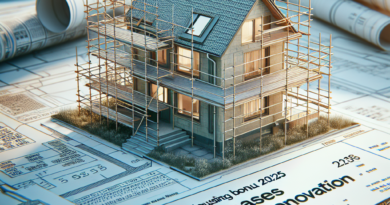110% super bonus for low incomes in 2024, the new features approved
With an ad hoc decree, on 28 December 2023, the rules on the Superbonus were changed to 110%.
The decree is the result of a majority agreement, but the effects are limited.
Here's what changes.
From 1 January 2024 the new rules on the Superbonus come into force, the main changes are: stop to concessions for detached houses and single-family homes (they can take advantage of the ecobonus); reduction of the percentage of tax deductions to 70% for all work carried out starting from 1 January 2024.
With the approved decree law, the aim is to help families with low incomes and to protect construction sites in condominiums, but the innovative scope of the package of standards appears limited.
Here are the main news on the 110% Superbonus.
Superbonus 110% 2024 for low incomes The law decree for low incomes provides for a non-repayable contribution for 2024 expenses to cover expenses resulting from the reduction of the subsidy to 70%.
The contribution should be accessible to: individuals with an income of less than 15,000 euros; coverage of expenses incurred between 1 January and 31 October 2024; achievement of a progress rate of at least 60% verified as of 31 December 2023.
The criteria and methods of disbursement of the non-refundable contribution must be provided for in a decree of the Ministry of Economy and Finance to be adopted within 60 days from the entry into force of the legislative decree.
The disbursement will take place, however, by the Revenue Agency.
Superbonus 2024 for condominiums even without SAL.
Not only the contribution for low incomes, there are further innovations in the Superbonus decree.
The law decree confirms the stop to the 110% Superbonus starting from 1 January 2024, but it will be possible to take advantage of the greater benefit for all expenses made by 31 December, even if it is not possible to present the Sal, Progress of work .
We remind you that the Sal can only be presented if the share of works carried out is at least equal to 30% of the planned works.
This implies that the deduction can be obtained at the higher rate even if the works are not completed and the expected energy efficiency is not achieved.
In fact, the law provides that "in the event of failure to complete the intervention itself, even if this circumstance leads to failure to satisfy the requirement of improving two energy classes", the right to tax relief is recognised.
Sismabonus, limits on the transfer of credit Changes have also been approved with regards to the Sismabonus.
For static consolidation interventions on buildings, the possibility of still resorting to the transfer of credit and the discount on the invoice is envisaged.
However, the legislative decree approved on 28 December 2023 provides for a tightening.
For demolition and reconstruction interventions, it will be possible to opt for the transfer of credit and the discount on the invoice only if the request for the qualification has been submitted before the entry into force of the legislative decree.
Furthermore, for interventions started after the entry into force of the decree it will be necessary to take out a "catastrophe policy" to cover damage caused to the relevant properties by natural disasters.
read also Sismabonus 2024, guide to admitted jobs, beneficiaries and news



